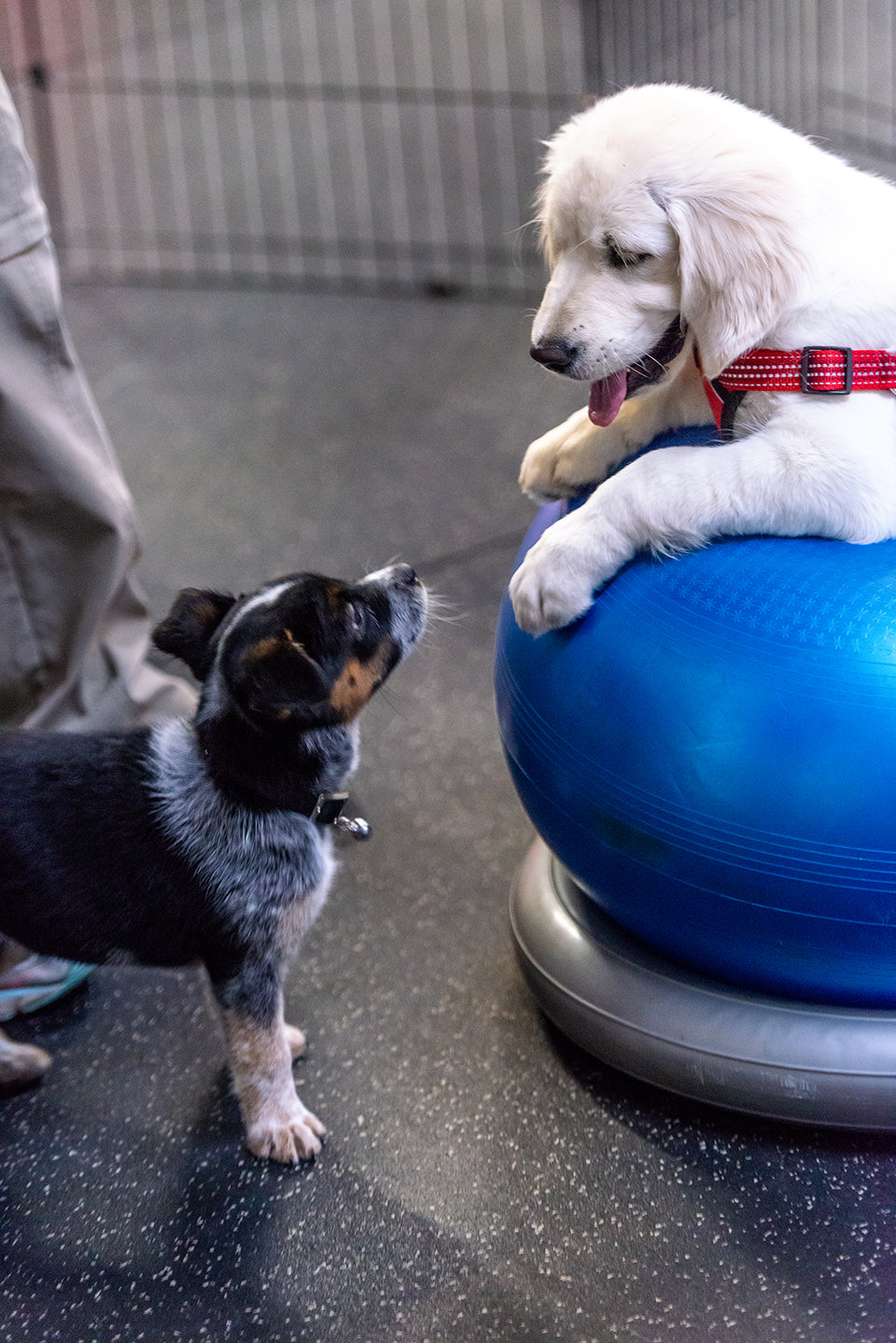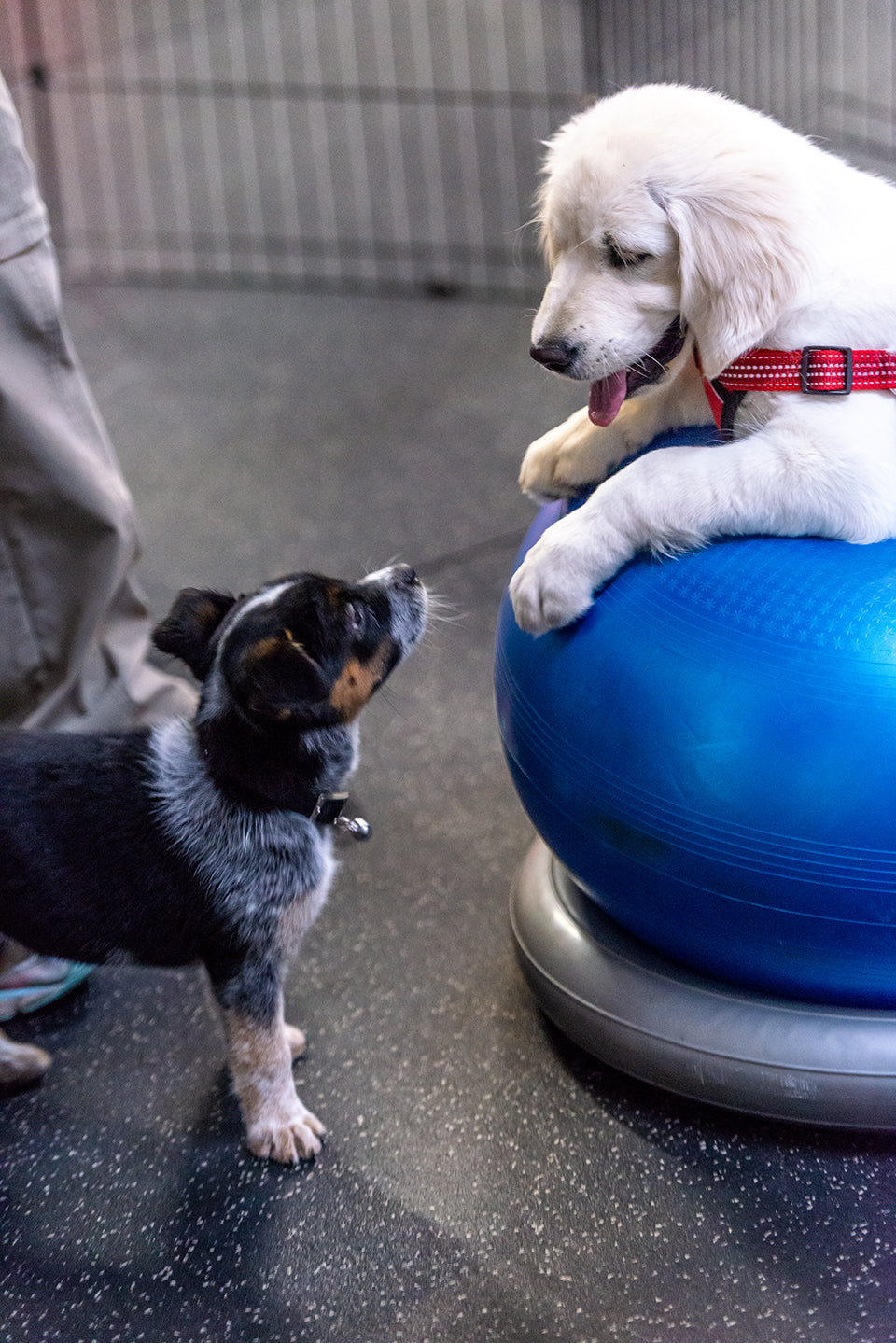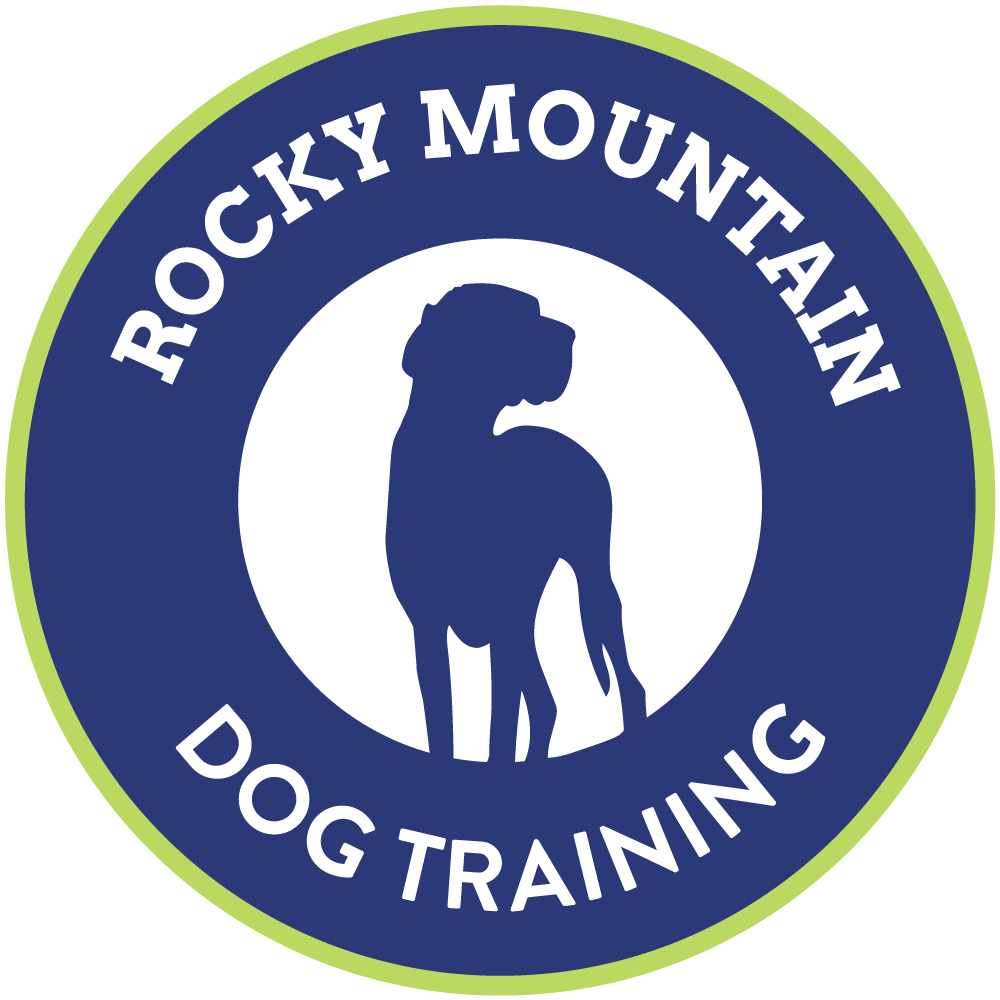Puppy Socialization
Puppy Socialization
What is The Puppy Socialization Period?
A once-in-their-lifetime period of neurological development when puppies are most receptive and flexible to new experiences and are forming impressions at warp-speed about their environment. It's essential to expose them in a positive, supported, and controlled manner to a wide variety of people, animals, sights, sounds, surfaces, handling, and environments during this time to promote healthy social development and prevent or decrease risk of fear and aggression issues later in life.
Why is Puppy Socialization important?
During this window puppies are taking in information about the world at an astounding rate. You might think of processing this information into two categories - safe and unsafe interactions. Data consistently shows that if puppies are prohibited from socialization until after 14 weeks, they lean toward considering novelty unsafe (which keeps them safe) and may lean toward fearful in new situations. These dogs often function well within a restricted social situation such as at home, but are more prone to fear and reactivity among the unfamiliar outside the house.
When should I sign my puppy up?
Our requirement for admittance is that the puppy be home 10 days to ensure they are free from illness, have received first round of vaccinations, and first round of dewormer. Do not frequent dog parks during your participation in this program.
Couldn't load pickup availability

Sign Up My Pup
We require you to sign up on our Meetup Page to attend. You can begin to RSVP directly on our Meetup Group. It is set up so that participants can easily manage their reservations, and get updates on the fly if a space opens up when there is a wait list for any given date.
Classes held Wednesdays at 6:15pm. RSVP required.
Vaccination Requirements
Accepted Record Formats:
Records may be sent via email in a .pdf, .png or .jpg format. Ensure full page is in view and legible and that it meets our vaccination format requirements. We do not accept hard copies at this time.
- We accept records on veterinary or rescue group letterhead.
- If records are coming from the breeder, the stickers from the vaccination vials must be included. If you don't have your puppy just yet, please request that your breeder include these.
- Puppies are not required to have completed their 3-round booster series to register or begin their program, however we do require they remain on schedule with their boosters throughout their program and not lapse. When your puppy receives their next round, please pass the updated record on to your trainer via email.
- Handwritten records without vial stickers are not accepted and we do not make exceptions.
This is to protect our clients to the very best of our ability. While rare, these illnesses are life-threatening and our clients appreciate our diligence in minimizing these risks. Thank you for understanding!
Puppies:
Distemper - On Booster Schedule
Parvo - On Booster Schedule
Rabies - Due at 16 Weeks
Adult Dogs:
All adult dogs must be up to date on distemper, parvo and rabies vaccinations. Bordetella required annually. Proof of vaccination required to enter building and participate in classes.
The distemper and parvo vaccinations are part of a combo vaccination given in 3 rounds of boosters at 6-8 weeks, 10-12 weeks and 14-16 weeks to increase immunity. Puppies do not need to have completed the series at start, but must stay up to date and on schedule throughout participation in all of our programs. Rabies is required at 16 weeks of age. Rabies is typically administered between 10 weeks and 6 months depending on veterinarian guidance and existing vaccination schedule however on July 15, 2025, PACFA (Colorado Department of Agriculture) issued new laws regarding rabies and commingling - 19.5.3 - Updated Vaccination Records as follows in order for puppies to commingle in playgroups: "Rabies: Dogs, cats, and ferrets over 16 weeks old must have current rabies vaccination. If a licensed veterinarian provides a written statement that a specific vaccination should endanger the animal's life, that animal can be exempt from the requirement. Important note for exempt dogs: dogs that are exempt from vaccinations (due to a vet's statement) cannot be allowed to interact with other dogs in the facility." If you have questions or concerns regarding PACFA's guidelines, here is their contact information: cda_pacfa@state.co.us.
But... my puppy isn't fully vaccinated.
The socialization window is driven by nature and doesn't wait for vaccines to be complete, so we work to decrease disease risk by providing a sanitized environment and curated, handler-supported activities in order to decrease risk for dangerous behaviors or mental health crises that impact quality of life for the dog and family down the road and are more common when the puppy's early emotional development is neglected. Your goal is to weigh risk vs. benefit, and if you're unsure, see what leading veterinary organizations have to say about it.
- AVMA: https://www.avma.org/sites/default/files/resources/socialization_puppies_kittens.pdf
- AVSAB: https://avsab.org/wp-content/uploads/2018/03/Puppy_Socialization_Position_Statement_Download_-_10-3-14.pdf
Should I wait?
If you're waiting for vaccines, no. Sign up! However, if at any point, your puppy is showing any signs of illness, injury or infection, please treat before bringing them to our facility to protect the population of puppies we see weekly. This includes: Coughing, Sneezing, Discharge from nose or eyes, mucus in stool, diarrhea not related to food change, or bald patches of skin that have not been cleared by your vet, or any signs of injury that may influence their behavior with other dogs and people (limping, sprains, etc.) Last, if there is an underlying medical issue such as an autoimmune disorder, in which case, you still need to do this work on your own even if outside this program.
My puppy is already showing abnormal behaviors. Now what?
Reactive and fearful puppies are encouraged to attend, though we ask that you email us prior to attendance or check in with an instructor before entering the training area so we can set up a "safe zone" for your pup and arm you with specific instructions to follow to minimize their stress.
All About Puppy Socialization
Raising Behavioral Sound Dogs
Here's A Recap
-
Timing it right
The actual Puppy Socialization Period and window of development begins at ~3 weeks of age, though puppies should be regularly and thoughtfully handled from birth. The window starts to wane between 10-12 weeks, with lessening flexibility until they hit adolescence at approximately 16 weeks at which point they are moving onto a new phase of neurological development.
-
Earlier is better
It is recommended to begin as early as possible to yield most fruitful results. For this reason, this process should have already begun before placement with age-appropriate activities and under the care of the breeder or puppy raiser, continued at a rapid pace throughout the socialization window after placement, then stay on maintenance through adolescence and adulthood.
-
Don't wait
Puppy Socialization is important because lack of early proper socialization often results in behavioral challenges later in life. Unfortunately, many families don't begin to socialize their puppies until almost 6 months of age completely missing their most critical socialization period, at which point owners are working against the clock and standard brain development to introduce their dogs to new environments, other puppies, and a variety of people. Don't make this mistake!
To understand the importance of early puppy socialization, please check out the guidelines set forth by the American Veterinary Society of Animal Behavior.
How do I sign up?
We require you to sign up on our Meetup Page to attend. You can begin to RSVP directly on
our Meetup Group. It is set up so that participants can easily manage their reservations, and
get updates on the fly if a space opens up when there is a wait list for any given date.

What does it cost?
You can contribute whatever you're comfortable with. Most participants chip in $10-$15 per dog per visit, but give up to $100 at a time to support RMDT Puppy Socialization program through all your visits!
What would you like to contribute?

